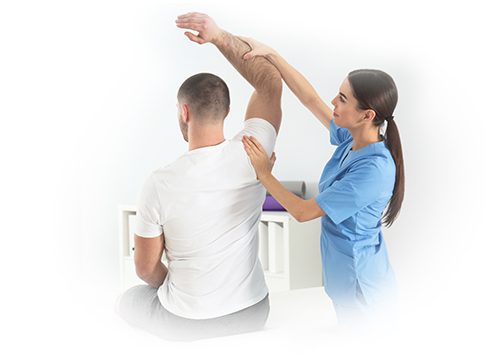Outcomes that matter to patients
Quodem is a leader in the design, implementation and running of performance measurement and predictive medicine projects.

Quodem is a leader in the design, implementation and running of performance measurement and predictive medicine projects.
Embarking on a project using a patient-centric perspective calls for a common focus amongst healthcare professionals, patients and their families in order to align clinical decisions with patient expectations and needs.
This approach includes programmes for the measurement of patient-relevant outcomes, training programmes and patient support initiatives, which help them play an active role in the decisions affecting their own health.


The doctor makes decisions based on his clinical criteria, experience and results of medical tests performed. Patient-centric model: information and technology allow the patient to be a participant in the clinical decisions that affect them.

A patient-centric system improves the quality of life of the patient and increases their loyalty to the health provider, therefore lending a competitive advantage, and at the same time channels cost reduction if results measurement programmes are incorporated.

Initiatives related to results-based medicine (value based healthcare) which incorporate big data techniques and artificial intelligence for the development of clinical decision support tools: clustering patients and definition of risk groups, identification of levers that influence results, measurement of the health professional’s performance.

These comprise digital solutions that help improve treatment compliance and adherence by patients by using SMS, eMail, Voz, Gaming or Apps to send reminders about the prescription pattern associated with that treatment. Chronic prescription products, with changes in the treatment pattern or with doses delivered over time, have a high dropout rate with respect to the prescribed pattern. Adherence programmes and compliance, through direct actions to the patient, are therefore essential to assist in compliance with the guideline (never with product advertising).

Apps, or mobile applications open an infinite framework in terms of the opportunities that technology brings to people’s daily lives. Their high availability and easy adoption by users make them a fundamental element as a communication channel with groups of people with similar characteristics and needs. Mobile devices offer important advantages which should be used to the full: availability, accessibility, immediacy, multimedia, geolocation, etc. It is therefore very important to have a deep knowledge of technology and its application to the business.

In many pathologies, especially chronic ones or those whose management is complex, patient-oriented training programmes have been shown to be very effective in empowering them and significantly improving results
